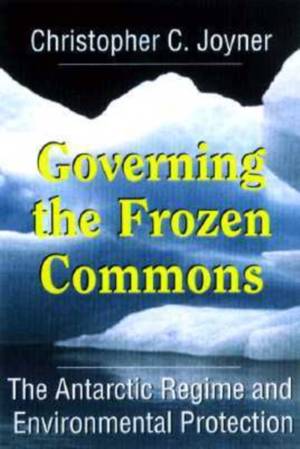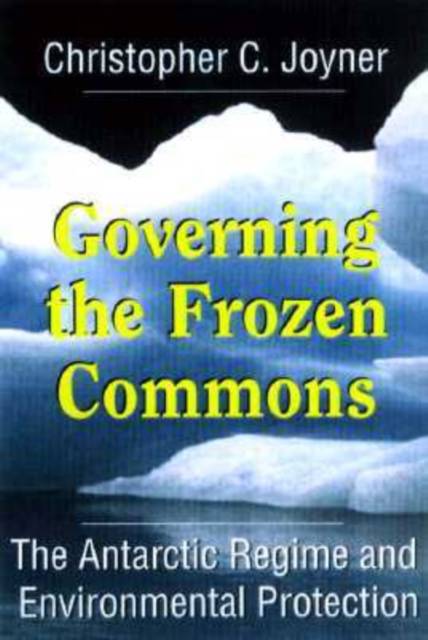
- Afhalen na 1 uur in een winkel met voorraad
- Gratis thuislevering in België vanaf € 30
- Ruim aanbod met 7 miljoen producten
- Afhalen na 1 uur in een winkel met voorraad
- Gratis thuislevering in België vanaf € 30
- Ruim aanbod met 7 miljoen producten
Zoeken
€ 36,45
+ 72 punten
Omschrijving
Antarctica, the last great wilderness on earth, is a continent of extremes. It is the coldest, highest, driest, windiest, remotest, most desolate place on the planet. Yet despite these profoundly forbidding characteristics the Antarctic commons has attracted increasing political, economic, and diplomatic attention in recent years. This interest has been stimulated by the tremendous bounty of living marine resources, concern over ozone depletion and environmental degradation, and exaggerated public speculation about the potential of exploiting mineral wealth, especially hydrocarbons, on and around the continent. Governing the Frozen Commons examines the Antarctic Treaty System as a complex legal regime for managing resource activities in the Antarctic and assesses what innovative legal arrangements might be needed to regulate future political and economic developments there. In this study, Christopher C. Joyner analyzes a number of critical considerations affecting the circumpolar south, including the status of Antarctica as a global commons; the legal regime currently in place for managing Antarctic affairs; the legal, economic, and political implications of applying a common heritage of mankind regime to the Antarctic; the viability of the legal regimes now established for resource management, conservation, environmental protection, and scientific investigation in the Antarctic; and the prospect that Antarctica might be considered a world park.
Specificaties
Betrokkenen
- Auteur(s):
- Uitgeverij:
Inhoud
- Aantal bladzijden:
- 352
- Taal:
- Engels
- Reeks:
Eigenschappen
- Productcode (EAN):
- 9781570032745
- Verschijningsdatum:
- 1/11/1998
- Uitvoering:
- Paperback
- Formaat:
- Trade paperback (VS)
- Afmetingen:
- 154 mm x 228 mm
- Gewicht:
- 603 g

Alleen bij Standaard Boekhandel
+ 72 punten op je klantenkaart van Standaard Boekhandel
Beoordelingen
We publiceren alleen reviews die voldoen aan de voorwaarden voor reviews. Bekijk onze voorwaarden voor reviews.








